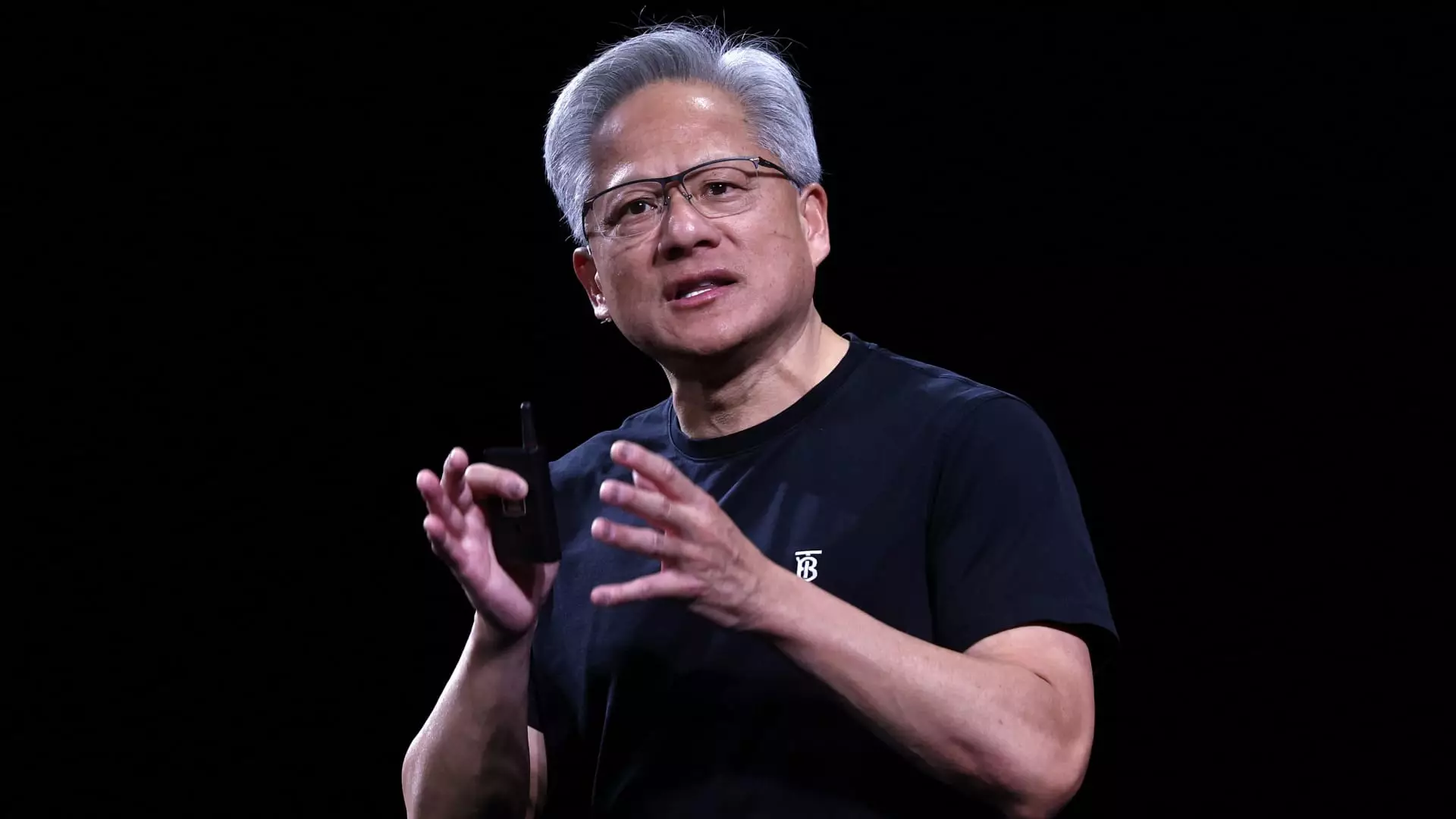In an era marked by rapid technological advancements, NVIDIA’s CEO Jensen Huang is redefining the landscape of artificial intelligence (AI) in Europe. His recent tour across London and Paris was not just a series of meet-and-greets, but a fervent call for a unified European approach to AI infrastructure. This narrative of empowerment stems from the belief that Europe, fueled by advanced technology, can take control of its own future. Huang’s approach taps into both excitement and urgency, reminding the continent that the time for assertive action in the tech realm is now.
The Charismatic Leader as a Modern-Day Rock Star
The atmosphere surrounding Huang is nothing short of electric. His presence at various tech events drew crowds reminiscent of a music concert, capturing the awe and enthusiasm of budding tech enthusiasts and industry veterans alike. Lines formed like tributaries flowing towards him, whether it was in the packed venues of the London Tech Week or the GTC event in Paris. What was particularly striking wasn’t just the audience’s eagerness to hear him speak, but their palpable desire for a personal connection with the man whose vision may well hold the key to Europe’s tech aspirations. The spectacle of attendees scrambling for selfies conveyed a deeper message: Huang embodies hope for those who see AI as a transformative force for good.
Understanding AI as Crucial Infrastructure
Huang’s rhetoric emphasizes that AI should not merely be viewed as a byproduct of technology but rather as a fundamental infrastructure akin to electricity. His address at the Viva Tech conference echoed this sentiment, calling for Europe to collaborate and build a robust joint capacity. In this framework, NVIDIA is cast not merely as a chip manufacturer but as an architect of an AI infrastructure that will bolster national sovereignty against the backdrop of global competition. This pivot from solely being a tech company to involving itself genuinely in national policy-making showcases Huang’s understanding of the strategic implications of the technologies he champions.
The Sovereignty Argument: Keeping AI Local
Central to Huang’s vision is the concept of “sovereign AI” – constructing data centers within national borders to cater specifically to local populations. This idea resonates deeply, especially in a time of increasing geopolitical tensions. European policymakers are recognizing their potential to build and maintain a self-sufficient AI ecosystem, which is crucial for their sovereignty in an ever-globalized market. It’s a call to arms, essentially urging Europe to stand tall and face the rising tide of reliance on foreign tech providers. By championing local AI infrastructures, Huang not only empowers Europe but also raises the stakes in the global tech arena.
The Chinese Competition: A Double-Edged Sword
One of the most compelling dimensions of Huang’s messages during this tour underscored the importance of addressing the looming shadow of China’s rapid advancements in AI. With the backdrop of export controls complicating NVIDIA’s operations in China, it becomes clear that competition in the AI space is not merely a frontier for innovation but also a battleground for technological supremacy. Huang’s warnings are stark – neglecting to engage with China on the technological front may cede the AI race to Chinese corporations that are gaining momentum, thus complicating America’s standing in global tech leadership. His comments on Huawei and the acknowledgment that they could cover gaps left by American companies reflect both a recognition of the competition and a plausible concern about the future alignment of global tech ecosystems.
A Vision of the Future: Balancing Optimism with Pragmatism
As someone who continually peers into the future, Huang embraces the imminent breakthroughs that lie ahead in fields such as robotics and autonomous vehicles. He foresaw this decade as the transformational era for these technologies, yet his insights go beyond mere enthusiasm. His emphasis on quantum computing reaching an “inflection point” offers a glimpse into potential capabilities that could redefine industries – from healthcare innovation to material science breakthroughs. Even so, the pragmatism underlying his optimism reveals a nuanced understanding of the technological landscape, indicating the reality that such advancements require strategic foresight and systematic collaboration to materialize and harness effectively.
Recognizing the Moment: An Invitation to Action
Huang’s whirlwind tour across Europe was about far more than just unveiling new products; it was a clarion call urging European nations to not only embrace but also take charge of their AI destinies. He invites policymakers, technologists, and business leaders alike to consider their roles in this global movement towards a self-sufficient and locally empowered AI ecosystem. In an age where technology exerts profound influence on daily lives, Huang’s narrative stresses that the time for proactive engagement is now. The next chapter in European AI development is poised to be written, and with leaders like Huang at the forefront, Europe has a formidable ally in crafting its technological narrative.

